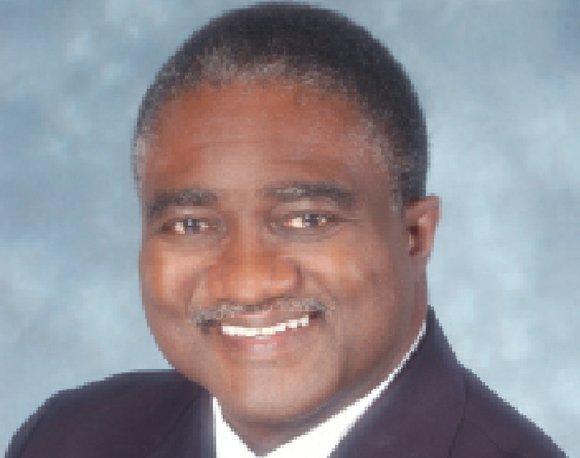Video of police a game changer
4/16/2015, 10:55 a.m.
Feidin Santana is a hero. He is the young Dominican immigrant who videotaped former North Charleston, S.C., police officer Michael Slager firing his gun eight times, killing an unarmed Walter Scott. Mr. Santana’s quick decision to videotape the unfolding action on his telephone led to the arrest of Mr. Slager for murder.
However, in some states, instead of being hailed as a hero, Mr. Santana would be the one behind bars.
Illinois, Maryland and Massachusetts have used their wiretapping laws to prevent videotaping police in public places. Some states are moving in that direction.
But, as we see, videotape can be a game changer.
This was vividly illustrated in 1991 with the brutal beating of Rodney King in Los Angeles. More recently, the July 17 choking death of Eric Garner in New York City was captured on video as he pleaded, “I can’t breathe.”
Thanks to a passer-by, we also saw the July 1 video of California Highway Patrol Officer Daniel Andrew straddling Marlene Pinnock, a 51-year old black woman, near a Santa Monica freeway and punching her 10 to 15 times. She reached an out-of-court settlement that required a $1.5 million payment and the resignation of Mr. Andrew.
Although no one can creditably deny the value of citizens being able to videotape on-duty police officers operating in public spaces, courts are sharply divided on whether it is protected under the First Amendment.
In an article titled, “The Legal Right to Videotape Police Isn’t Actually All That Clear,” the Atlantic Citylab noted, “… The truth is that courts have not uniformly recognized that a right to record police actually exists. Though the U.S. Department of Justice has expressed its support for the right to record, only four federal appeals courts have ruled that such a right exists; others have either not ruled at all or narrowly rules that no right had been ‘clearly established.’”
I am not a lawyer and I don’t play one on TV. But the best available legal advice seems to be that generally speaking, it is legal under the First Amendment to videotape on-duty police officers as long as it is on public property and you are not interfering with them performing their official duties. As noted above, some state laws ban such recordings.
Given recent success, you can expect police unions around the nation to push for legislation that would bar citizens from videotaping such incidents involving police.
Even before the recent spree of police killing African-Americans, there was strong resistance. A woman in Rochester, N.Y., for example, was arrested and charged with obstructing governmental administration in 2011 after videotaping three white police officers interrogating a black man from her front yard. Charges later were dropped against the woman, Emily Good, 28.
What would have happened to Mr. Slager in South Carolina had there been no videotape?
In a word — nothing.
In fact, the officer had radioed, “Shots fired… Subject is down. He grabbed my Taser,” a charge not supported by the videotape. Instead, what we see in the video is Mr. Slager dropping the Taser near Mr. Scott’s motionless body. The cover-up was underway before Mr. Scott’s body could be moved to the morgue.
The local newspaper reported the next day:
“A statement released by North Charleston police spokesman Spencer Pryor said a man ran on foot from the traffic stop and an officer deployed his department-issued Taser in an attempt to stop him.
“That did not work, police said, and an altercation ensued as the men struggled over the device. Police allege that during the struggle the man gained control of the Taser and attempted to use it against the officer.
“The officer then resorted to his service weapon and shot him, police alleged.”
Of course, that was a lie.
According to the Washington Post, Victoria Middleton, executive director for the ACLU of South Carolina, said: “…I think one of the concerns that immediately comes to mind is the discrepancy between the initial story, the kind of rush to judgment, the rush to say that procedures were followed and this was justified, and then when the video surfaced, that quickly unraveled. That could raise concerns about other incidents in which we have been assured that nothing was out of order and the officer acted completely properly but there were no witnesses or video documentation to dispute that.”
That’s why we must resist all efforts to prevent citizens from freely videotaping police while they are supposedly acting in a lawful manner.
George E. Curry is editor in chief of the National Newspaper Publishers Association News Service (NNPA) and BlackPressUSA.com.







